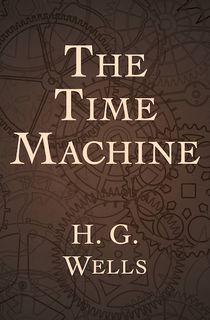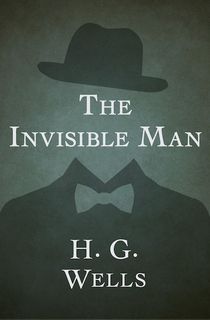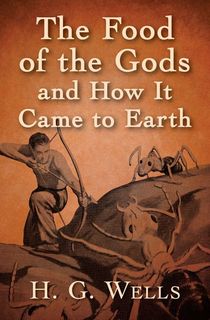When H.G. Wells was born on September 21, 1866, science fiction wasn't an established genre as we know it today.
Sure, there had been stories told that had elements modern readers might identify as 'science fiction'—around 1,800 BC, the ancient Mesopotamians came up with a tale called the Epic of Gilgamesh, which included an apocalyptic flood and a human quest for immortality. Some people consider that to be the first example of science fiction. And there was 1818's Frankenstein, which is pretty clearly sci-fi/horror by today's standards. If you want to really get into the weeds there are numerous other examples of early, proto-science fiction to explore.
RELATED: Fascinating Facts About Mary Shelley
But, these examples aside, science fiction wasn't really a recognized category like it is today. Similar to a flash mob or a frat kegger, a genre has to reach a certain critical mass before it can be recognized for what it is. A photograph has “elements of” a movie, but you’ve got to run through a bunch of images in a row before it actually is a movie. It took many more books before Mary Shelley’s Frankenstein became “genre fiction,” and Wells wrote a great deal of those books. (Jules Verne wrote many of them, too, but that’s a different article.)

By the time H.G. Wells died in 1946, science fiction was very much a genre. In fact, the next few decades saw countless atomic-age sci-fi classics emerge in all different mediums, and the genre is still going strong today. Wells helped invent science fiction, and he also gave the fledgling genre some of its most important traits. Wells was one of the first to see that writing books about flying machines and time travel provided authors with a lot of opportunities for social commentary, satire, and criticism.
RELATED: 13 Classic Science Fiction Books Everyone Should Read
Turning back the clock with The Time Machine
Let's travel back in time to 1895, when H.G. Wells published his first novel, The Time Machine. Time travel is about as sci-fi as it gets, but nobody really knew that yet; Jules Verne had published a few novels that we now recognize as science fiction (including 20,000 Leagues Under the Sea), but nothing in Verne's stories was bending space and time like Wells' fictional invention. (Besides, I already said that we weren’t going to talk about Jules Verne!)
More important than the titular time machine, though, is the novel's exploration of social class. In the distant future year of A.D. 802,701 (Wells' novel won't be proven wrong for another 800,682 years—tragically, very few of his disciples seem to have picked up on this excellent lesson in sci-fi longevity), there are two races. The protagonist believes that they’ve evolved from humanity: The upper classes have become a lazy, worthless race, while the working classes have become brutal savages. The novel would still have worked without this detail (there are plenty of other ways to drop a protagonist in a situation with two different races like these), but the story is more interesting for it. You don't have to be a socialist like Wells to appreciate that this is a prototypical example of the sort of satire and social commentary that science fiction still does so often and so well today.
Ethics and science fiction: The Invisible Man and The Island of Doctor Moreau
Wells was just as concerned with ethics as he was with politics (though, as Wells would probably have pointed out, those two things have a way of getting mixed up with each other). A year after The Time Machine, Wells published The Island of Doctor Moreau, which featured a mad scientist — that’s Moreau — whose twisted experiments have resulted in human-like animals called "Beast Folk." It's pretty unsettling stuff, and Wells soon wrote a more out-and-out horror novel, The Invisible Man, cementing the relationship between sci-fi and horror that Frankenstein had anticipated nearly a century before.
RELATED: 11 Scary-Good Sci-Fi Horror Books
Wells' scientists don't get much more competent from there. In 1904's The Food of the Gods and How It Came to Earth, Wells' fictional scientists invent a super-food that spurs children to grow into giants. Unfortunately, lots of other things—like cockroaches and mosquitoes—end up huge, too. It's suboptimal.
Wells wasn't exactly a pessimist, but he wasn't afraid to represent the dangers of the science his readers were so fascinated with. His work helped establish a genre that is as deft at criticizing scientific hubris as it is at lampooning anti-science hubris.
Wells, the wars, and where we wound up
Predictions aren't really the point of science fiction—this is fiction, after all—but people love fact-checking them all the same. In that regard, 1908'sThe War in the Air has proved to be prescient. Wells predicted the use of aircraft in military engagements and the coming of a great war that was not unlike the Great War, World War I.
That war did come, of course, and Wells kept on writing and publishing through World War I, the interwar period, and World War II before dying in 1946. By the end of his career, his reputation was declining—in a large degree thanks to his insistence on speaking up on the issues. If Wells' work got a bit preachy toward the end, though, it was nothing next to his nonfiction. In a preface to the 1941 reprinting of The War in the Air, Wells wrote that his epitaph should be: "I told you so. You damned fools."
Wells' crankiness and preachiness may not have gone over well in 1946, but his legacy has won out. Among science fiction's various forerunners, firsts, and fathers, Wells is responsible for a unique and vital part of what makes science fiction matter. Science fiction has time travel, spaceships, and alien races; thanks to Wells, it also has a point.
Featured photo: Wikimedia Commons





